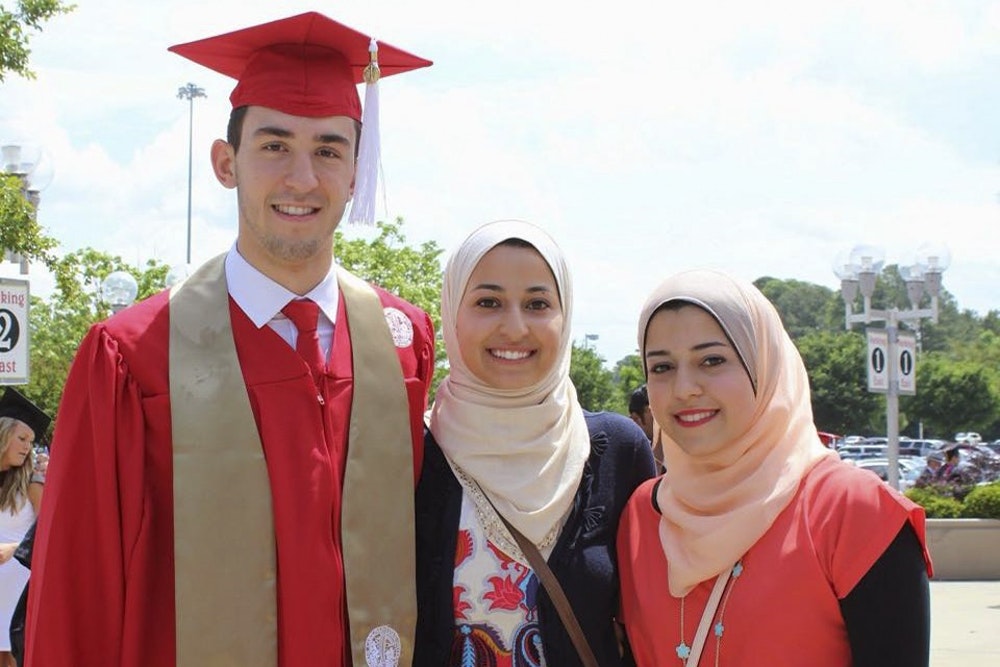April 12, 2019

Darkness cannot drive out darkness; only light can do that. Hate cannot drive out hate; only love can do that.
Those words were first spoken by Martin Luther King Jr., and many have repeated them. But it takes integrity to live by them, especially when hate has touched you in the most profound way.
Yet, that’s exactly what the families of Deah Barakat, Yusor Abu-Salha, and Razan Abu-Salha have done again and again since February 2015, when these three promising Muslim students were senselessly murdered by an angry white neighbor. The crime not only ripped a hole in their families and deprived the world of three wonderful people, it terrorized the entire Muslim community. To make it worse, since the murders, their loved ones have been targeted with hateful slurs.
Their response has been to ensure that the legacy of their beautiful children will be one of love, not hate. They opened a community center for young Muslim people in a house that Barakat once owned. They started an annual interfaith food drive in the victims’ honor. Just this week, they traveled to Washington D.C. to share their story at a Congressional hearing on hate crimes.
And then Thursday, when the Durham district attorney announced that she would not seek the death penalty against their killer, the victims’ brother, Farris Barakat, stood before a crowd of reporters and expressed the family’s support for the decision. He cited those words from Dr. King and acknowledged that nothing that happens in a courtroom can ever bring true “closure” for their loss.
The myth of the death penalty is that it has a magical power to bring closure to grieving families. But the truth is that it only stokes more hate and anger. It only creates more grieving families. It only brings more darkness into our world.
D.A. Satana Deberry explained that removing the death penalty from the picture would allow the trial – already overdue – to proceed without delay. Deberry made the right decision in this difficult case, one that should be an example for other prosecutors dealing with painful crimes. The death penalty delays and extends trials and appeals, making them more painful for all involved. And, for all that, only a tiny fraction of cases ever result in execution.
Deberry also said that bringing the case to trial quickly will allow the family to begin to heal. It’s clear they’ve already begun that difficult work. Their actions this week were yet another step toward ensuring that the memories of their loved ones will be beacons of love and hope, rather than catalysts for hatred and death.
